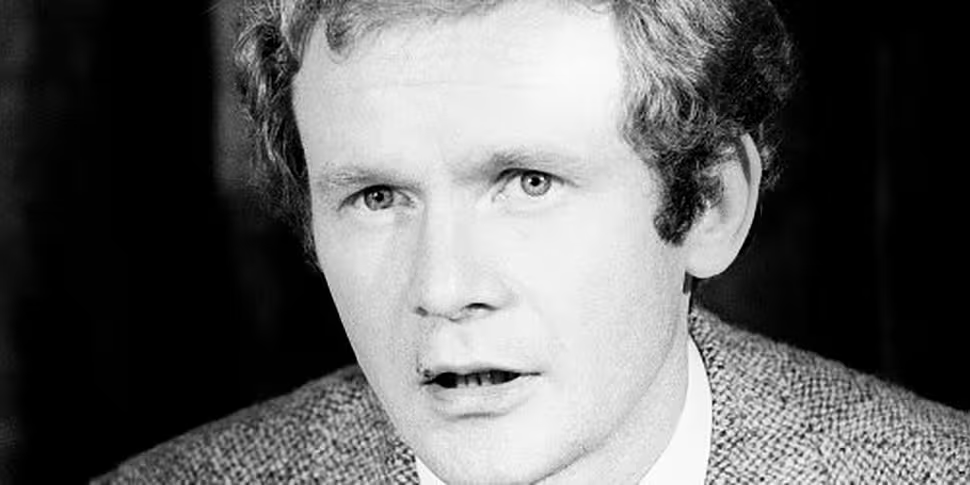If anyone embodied the IRA strategy of "Armalite and ballot box", it was Martin McGuinness.
He joined the organisation in his teens. By the age of 21, he had already taken charge of its Northern Command.
The Bloody Sunday Inquiry found he was "probably armed with a sub-machine gun" on the day British troops shot 14 innocent people dead in Derry.
But later that year, 1972, he was flown to London for secret talks with the British government. Their early attempt to establish a ceasefire failed.
Martin McGuinness dies aged 66
McGuinness rose through the ranks to become the IRA's chief-of-staff, a member of its ruling army council.
He denied having had advance knowledge of the 1987 Poppy Day bombing in Enniskillen, in which 11 people died.
An army intelligence officer told an inquiry in Dublin that McGuinness had sanctioned "human bombs", forcing people to transport devices by proxy.
One so-called human bomb attack claimed the life of Patsy Gillespie and five soldiers at an army base near Derry.
Gillespie, a Catholic who worked as a cook on the base, had been ordered to carry a bomb there on his vehicle while his family was held hostage.
In 1994, the IRA declared an end to its campaign of violence and Gerry Adams appointed Martin McGuinness as Sinn Féin's chief negotiator.
Elected Deputy First Minister of Northern Ireland, he knew his decision to share power with the Democratic Unionists brought personal risk.
He said: "If there are people out there who are maliciously disposed towards my involvement in the peace process and they want bad enough to take my life, I'm around long enough to know that they have the ability to do that.
"Am I going to let that put me off in my work for peace? Not in a million years."
Tributes paid to Sinn Féin's Martin McGuinness
He not only sat in government with Ian Paisley, the arch enemies became friends, pictured laughing together often and nicknamed "the chuckle brothers."
His historic handshake with Queen Elizabeth II became the norm over time. When he enquired how she was during one visit, she replied: "Well I'm still alive."
Asked by Sky News if he was ready to tell the truth about his past, Mr McGuinness replied: "That's not a difficulty for me whatsoever.
"If, in any circumstance, any of that has a connection with myself in relation to people levelling allegations or whatever, then I will deal with that."
But Martin McGuinness never did reveal his secrets. He resigned as Deputy First Minister in protest at a public finance scandal.
It signalled the end of what had been an unimaginable journey for the paramilitary chief turned peacemaker.









